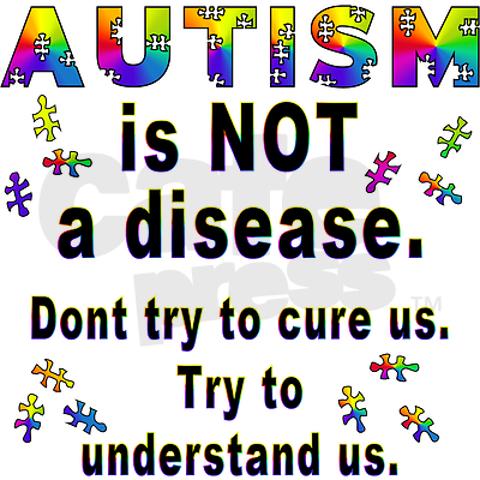Meet Jacob Barnett. Jacob is a 16 year-old genius touted as a successor to the likes of Isaac Newton and Albert Einstein. Jacob is also a disruptive leader, challenging our educational model (and he's hardly the only one). Plus, he's the star of a popular Ted Talk and has been on the Glenn Beck show.
Oh, yeah - and he's autistic. Didn't learn to speak for ages, but when he did, spoke in multiple languages, including physics.
If Jacob had been forced to learn in a traditional manner, apply for jobs in a traditional manner and compete with more "normal" communicators for those positions, he'd likely be a failure, costing the healthcare system and/or impeding his family from their own economic contribution. Whole families have been brought down this way.
But because his mom, Kristine Barnett, paid attention to the cues she got from her son and worked to support his growth and development in a way that worked for him, Jacob is now poised to change the world.
There's a lesson in here about how we identify and manage "mental illness" and "developmental disorders" that we are painfully slow in learning.
Where it comes to all things cognition, we're still tying left hands behind backs and trying to force people to right strictly with their right.
We want people to think and act in one way - laissez-faire, competitive, sales-oriented and succeed through one frame. We expect outliers to sell themselves to us without any effort on our part.
It doesn't work.
Right now, there are cognitive outliers out there working in mail rooms or living on the street, struggling to come to terms with a cognitive gift they can't see as anything other than a curse as work opportunities and relationships pass them by. Some of these people, given the right tools and support, could cure cancer, remodel government or develop an eco-friendly, completely sustainable energy source. Who knows? We never will, because we're not prepared to listen to them.
At the same time, we have "normal" people becoming less productive, less social and more likely to suffer from illness because we're designing work and work places wrong. A bit of design thinking could fix all this, but that's too much like committing sociology, isn't it?
There's nothing more frustrating than watching people flail in the dark when there's light available.
But try explaining that to the overconfident people in The Cave.


No comments:
Post a Comment